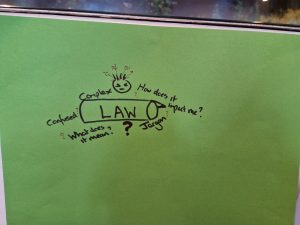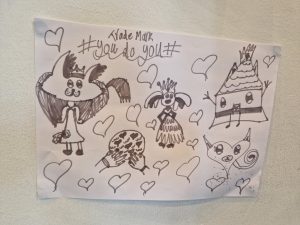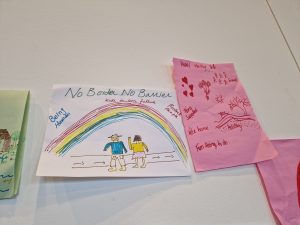Alyssa Faulkner, our UNCRC Skills and Knowledge Project Worker shares an update on what we’ve learned from our Children and Families Panel thus far…
At Children’s Parliament, we help children to learn about human rights and support them to have a voice on things that are important to them. We work with children across the nation to deliver many different projects, ranging from The Artificial Intelligence Programme to supporting children to go to the annual Cabinet Takeover in March.
Recently, we have started on a unique piece of work. We have been commissioned to develop a national UNCRC Skills and Knowledge Framework in partnership with 4 other organisations, who are JustRight Scotland, JRS Knowhow, Observatory on Human Rights of Children Wales and Together Scotland. Our role is to support the children and family engagement throughout the process.
The UNCRC is very much connected with the experience of family life, and parents and carers are respected as grounding the child in love, happiness and security, the basis for a good childhood. We fully respect for the role of families as their child’s primary educator, carer and advocate. For this reason, we decided to take a family approach for this project, to ensure their voices and lived experience are at the heart of the Framework.
To do this, we recruited 13 families from a diverse background, in different sizes, shapes and forms, to become a Children and Families Panel. Through our creative methods, the Panel explores the interface between family life and children’s rights. They also contribute their thoughts on what the professionals need to make rights real for children in Scotland. In parallel to the Children and Families panel, Together Scotland are running a panel consisting of professionals representing the duty bearers from across Scotland.
In January, we were so excited to meet up with the Children and Families Panel in Edinburgh. Since the project commenced in September last year, this was the first opportunity for all families and staff members to meet each other in person, bond and share stories. On the day, the families (19 adults and 21 children) participated in various activities to explore the theme “What does family life in contemporary Scotland look like”. These are some of the highlights.
When we describe children’s rights and UNCRC at Children’s Parliament, we always frame it around making children happy, healthy and safe. So to start with, in the first activity, families were invited to draw what came to mind when they thought of being happy, healthy and safe:
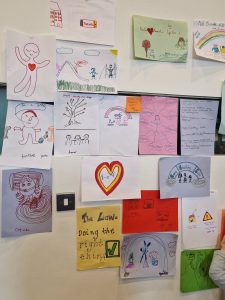
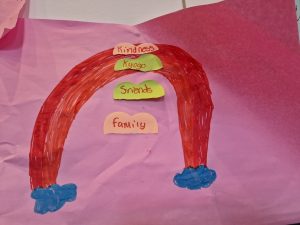
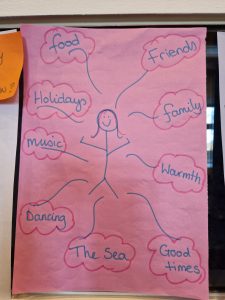
In the afternoon, we encouraged children and parents/carers/guardians (split into two groups) to talk about what they need and bring to family life.
Things that children said they need from their family:
“Reassurance, understanding, a home, love, an education, toys, privacy, opportunities, good health, shelter, responsibilities, one-to-one time”
Things that children said they bring to their family:
“Family, music, fun, smiles, love, annoying, laughter, bravery, hugs, teaching about technology, weird and awkward moments, noise, sassy”
Things that parents and carers said they need from their family:
“Honesty. Understanding, love, support, empathy, freedom from judgement“
Things that parents and carers said they bring to their family:
“Routines and boundaries, discipline, kindness, love, guidance, respect, care, comfort, shelter, security, voice, knowledge, experiences, time.“
When we showed the children and parents/carers the other groups ideas, it was pointed out that things that parents and carers bring to the family are similar to what children identified as needs from the family, which were usually along the theme of basic needs and love. Parents/carers identified that they bring stability to the family, but they need to also receive some compassion when they get it wrong. Children identified that they were all unique and bring so many different personalities and joy.
The takeaway from the day: Families come in all shapes and sizes, with different needs and unique personalities. We need to ensure that all professionals, when working with children and families, are taking this into account and not making sweeping generalisations when working with children and families. When working with children and families, one size doesn’t fit all. We should not make the assumptions based on their belief of what a traditional family looks like. Different cultures, disabilities, sexualities etc need to be considered when working with children and families. Only by taking this into account, there is a better chance to truly make rights real for every child.
